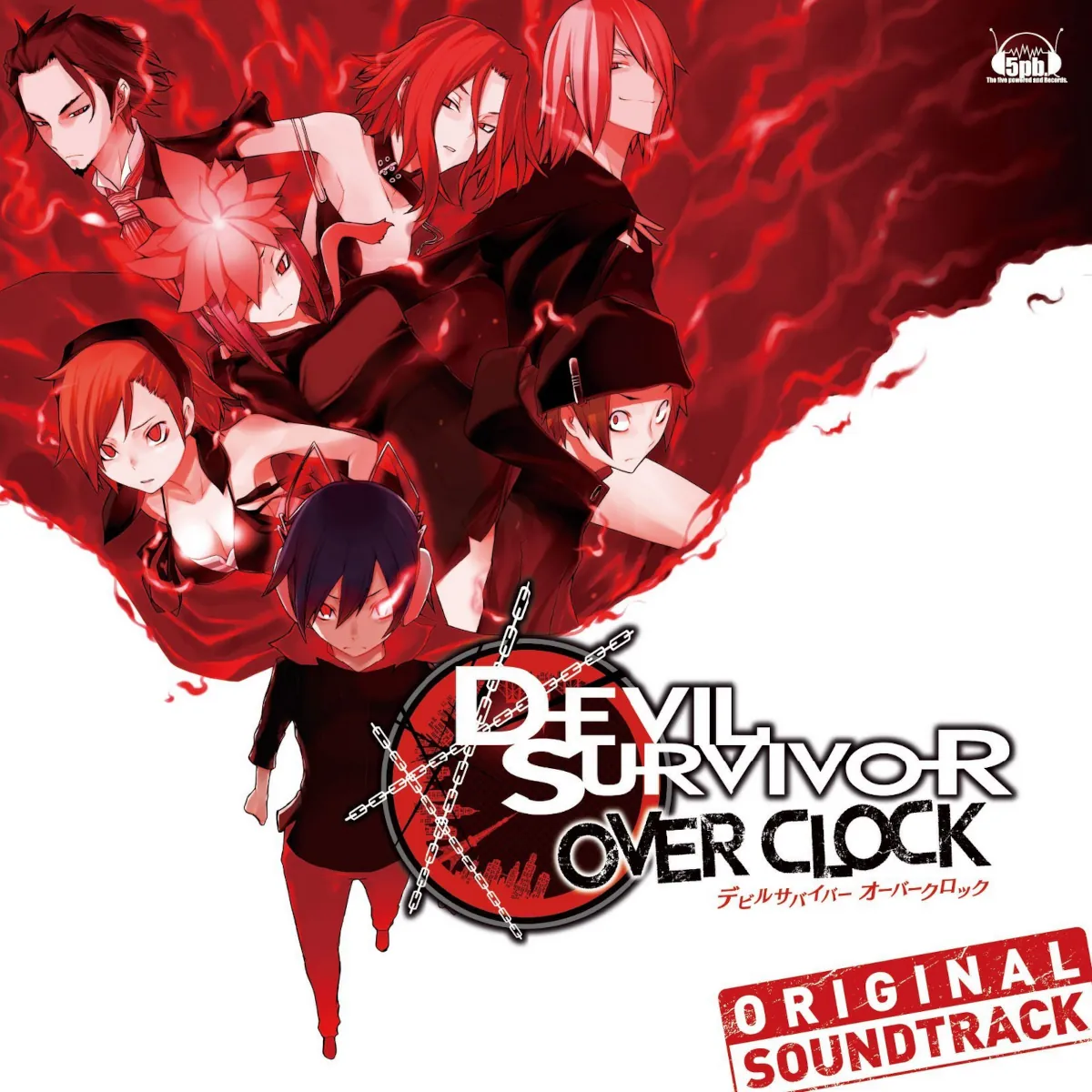Shin Megami Tensei: Devil Survivor Overclocked (or “Over Clock” in Japan) turns our expectations around on us and makes us question why we accept repetition. Unlike its JRPG brethren, Devil Survivor opts for serious decision making, non-linearity, and purposeful battles. However, the quality of its story and mechanics aren’t the only way in which it departs from its cohort: Devil Survivor‘s soundtrack strays from the beaten path, choosing a more rock-ish assortment of pieces. While most RPGs, old and young, include classical horns, strings, and light percussion, Devil Survivor‘s heavy reliance on the electric guitar helps us realize that gaming music can be so much more than the traditional fare. Not that there’s anything wrong with the classical trend—the way in which the piano is played, the emotion behind it, and the coupling of story make it an instrument with nigh-infinite possibilities; Devil Survivor just helps broaden our horizons, which brings me to my favorite track…
“Sunset,” track 5. Though this entire album is crammed full of excellent pieces that rarely miss, “Sunset” just perfectly accentuates the finality of each passing day—the impending doom. The guitar speaks to us agonizingly, as if in greater despair than our trio. Although RPG music should always aim to couple itself to the situation, the long chords cry for help in such a way that they embody a persona of their own; even the best themes in RPG music history rarely match this vibe. For those unfamiliar with the game who might want to grasp a little bit of what I’m alluding to here—Devil Survivor relies heavily on feelings of dread and despair. The characters spend their days trying to figure out how to escape the Yamanote barricade, all while helping other people with their new-found ability to summon demons. However, we must remember that these are children, and that they have as much to fear as those who are unarmed. Typically, we expect our heroes in JRPGs to feel invincible and confident, ready for every coming challenge. Devil Survivor tosses this assumption aside, and leaves our protagonists with a sorrowful closure to typically successful, productive days; as omniscient gamers, we see the power behind their actions, but as real people trapped in this setting, they have no choice but to face reality. That’s where this track comes in; it sets the tone for what’s going on inside their heads when they finally get a chance to sit down and just breathe. Most music, even in movies, can’t hope to accentuate a situation this well.
I highlight this track, specifically, not just because of its inherent strengths, but because it doesn’t necessarily match the rest of the game’s music. Yes, the guitar is the central theme of the album, but much of the music is adrenaline-infused, rock-out-style instrumentation. Emotional, brooding tunes like the aforementioned “Sunset” are few on this album. Take, for instance, tracks 10 and 11—”Aggressive Tune” and “Battle Beat.” These are two of our common battle themes. They enjoy the electric guitar how we would expect, and “Battle Beat” spares little strumming. After all, it’s an electric freakin’ guitar. There will be no toe-tapping; only aimless finger pointing in the air and head banging/nodding depending on how hardcore you are.
Honestly, though, the album is not comprised entirely of hardcore rock numbers. Devil Survivor has a couple funky tunes like track 13, “Cool Jam.” Though it departs from the hardcore consistency of the soundtrack, it’s fast-paced and has an awesome beat. This one might involve some digit-tapping. Actually, I’d probably call this track one of the weakest on the album, but that might be on account of personal taste. Though, as I suggested earlier, few tracks, if any, miss on this soundtrack.
Track 19, “Deep Night,” might not sound too awesome if you sample it, but given the situation in-game and the dilemma gameplay-wise, the tune is extremely intense in its proper context. Yeah, it evokes another hardcore feeling akin to the battle music (tracks 10 and 11), but crank the epic atmosphere two or three notches—that’s about where this track hits. Of course, having played the game, I thoroughly enjoy the piece sans gameplay, since the context plays out in my head while I hear the music.
Should a soundtrack rely on its own merit or how it complements the game? Personally, I feel that the composers are contracted to write the music for the game, so we should judge it in its proper context. Now, buying the soundtrack itself means that you will be listening to the music without the game’s situation directly at hand, but if you play the game, it will likely leave a lasting impression negating this downside.
Which brings me to my little secret: I was extraordinarily underwhelmed by this soundtrack upon listening to it before playing the game. My brother played Devil Survivor and loved it; he especially liked the music, which is uncharacteristic of him when gaming. So, in my curiosity, I asked if he’d recommend a track or two. After listening, I was unimpressed. Right now, as I listen to track 28, “Eternal Life,” I can’t imagine how this was ever the case. Perhaps this is a testimony to how powerful the game is, but, regardless, I encourage you to buy the game and its soundtrack.
Editor’s note: the digital version of this soundtrack includes the vocal version of the theme song “Reset,” making for 29 tracks total.





